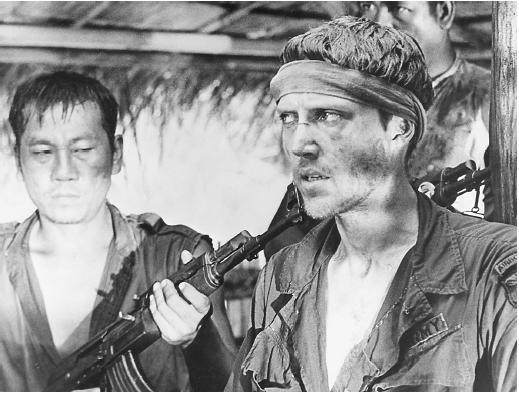
There was one scene in Funny Face in which Audrey Hepburn, in a beatnik-ish French café, did a modern dance. Dressed in black, head to toe, she dances in the smoky room in a way that had probably seldom been seen before this film, and hasn’t been seen much since. It was very unique to the film. Other than that, I’m afraid that the film was not all that impressive.
Funny Face is about the world of fashion photography. Astaire, a photographer, discovers a new model, Hepburn, and whisks her away to Paris. In the film, Hepburn, as always, is adorable and plays her character well. However, the character is irresponsible, naïve, and kind of annoying. She had gone to Paris as a model as a means to getting to meet her favorite philosopher. While there, she acts fairly childish, as she half models and half parties with the artsy fartsy crowd. Meanwhile, she is falling head over heals for Astaire.
It may be my personal prejudice, but the coupling of Astaire and Hepburn did not seem at all natural to me. In fact, it seemed very unnatural and kind of weirded me out, not to mention that the character was very patronizing, which was frustrating. The film also had the small flaw that is common in many classic films – that the couple get together too easily at the end. At the requisite post initial get together break up, some terrible things are said, which are never taken back or proven wrong. In my opinion that greatly lessens the relationship, which wasn’t all that strong to begin with.
Now, based on the two stars, you may be thinking that the song and dance number must have been great. And they were, but not for Fred Astaire. Compared to what he did with Ginger, what he did with Audrey was nothing special.
The role of the magazine editor figure was played by Kay Thompson. She was very good. She has a great voice and played the character well, being just the right mixed of bitchy and sensitive. Also done well was the cinematography. The shot are beautiful and the use of color throughout the film, particular the first “Think Pink” scene and the spotlights at the café, was exceptional. Unfortunately, I don’t have many other good things to say about this film. I thought it was average, especially compared to other films of the time and genre.
Photo Retrieved From http://blog.silive.com/teens_impact/2009/03/large_swingaudrey.jpg






